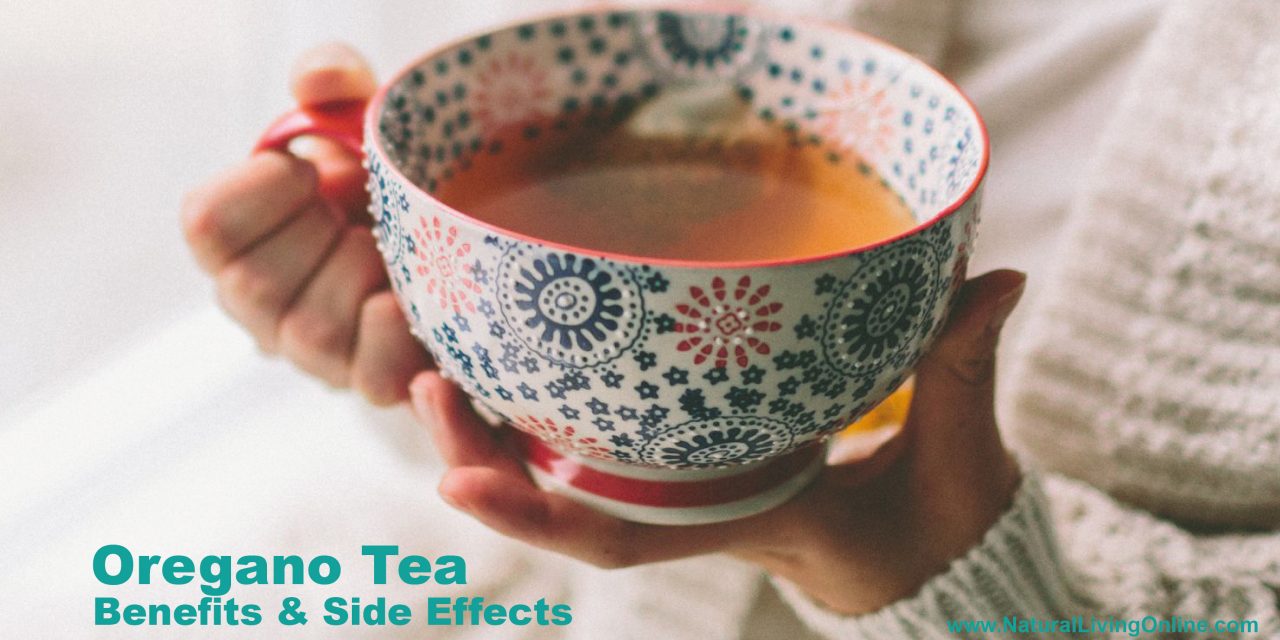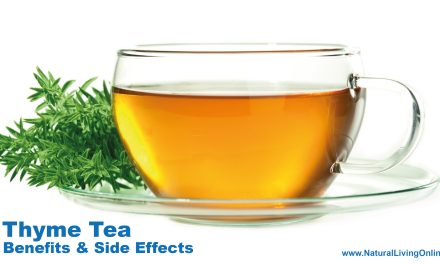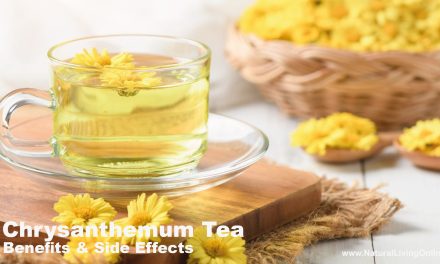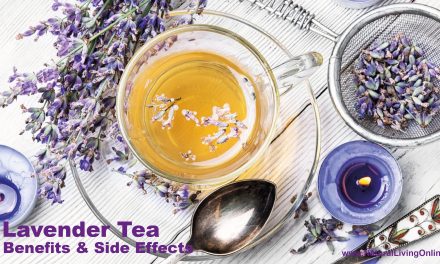Oregano tea has gained popularity as a natural remedy for various health issues. This aromatic beverage is made from the leaves of the oregano plant, known for its strong flavor and potential medicinal properties. Many people drink oregano tea to support their immune system, aid digestion, and reduce inflammation.
Oregano tea may offer several health benefits, including antibacterial and antioxidant effects. Studies suggest that compounds in oregano, such as carvacrol and thymol, could help fight harmful bacteria and boost overall health. Some drinkers report relief from cold symptoms, stomach discomfort, and even skin issues after consuming this herbal tea.
While oregano tea is generally safe for most people, some individuals may experience stomach upset or allergic reactions when consuming oregano tea. It’s always wise to start with small amounts and pay attention to how your body responds. Pregnant women and those with certain medical conditions should talk to a doctor before drinking oregano tea regularly.
Key Takeaways
- Oregano tea contains compounds that may have antibacterial and antioxidant properties
- The tea might help with immune support, digestion, and reducing inflammation
- Some people may experience side effects, so it’s best to start with small amounts
Oregano Tea Composition and Properties
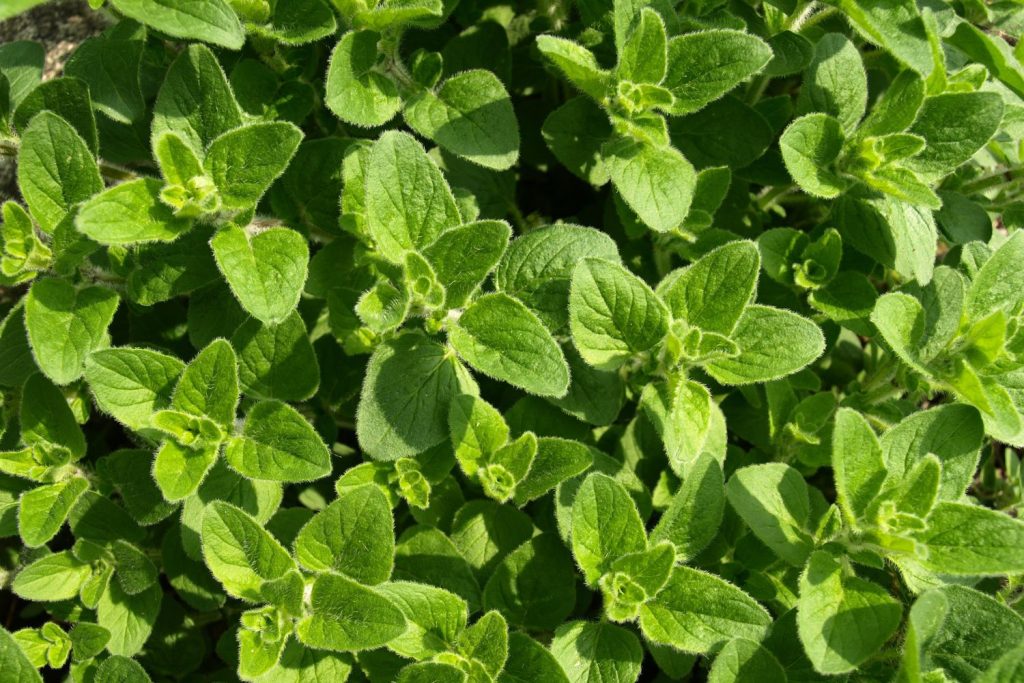
Oregano tea contains several important compounds that give it unique properties. These components contribute to the tea’s potential health benefits.
Essential Compounds in Oregano
Oregano tea is rich in carvacrol and thymol, two key compounds that give the herb its distinctive flavor and aroma. Carvacrol is known for its antimicrobial effects, while thymol has antifungal properties.
The tea also contains rosmarinic acid, a phenolic compound with antioxidant and anti-inflammatory effects. Other important components include:
- Ursolic acid
- Oleanolic acid
- Vitamins A, C, and E
- Minerals like calcium, magnesium, and zinc
These nutrients work together to support overall health and wellbeing when consuming oregano tea.
Antioxidants and Anti-Inflammatory Effects
Oregano tea is packed with antioxidants, including flavonoids and phenolic acids. These compounds help protect cells from damage caused by free radicals.
The antioxidants in oregano tea may:
- Reduce oxidative stress
- Support immune function
- Promote healthy aging
Oregano’s anti-inflammatory properties come from its high content of carvacrol and thymol. These compounds may help reduce inflammation in the body, potentially easing symptoms of various health conditions.
Research suggests that oregano tea’s antioxidant and anti-inflammatory effects could contribute to its potential benefits for digestive health, respiratory function, and overall wellness.
Health Benefits of Oregano Tea
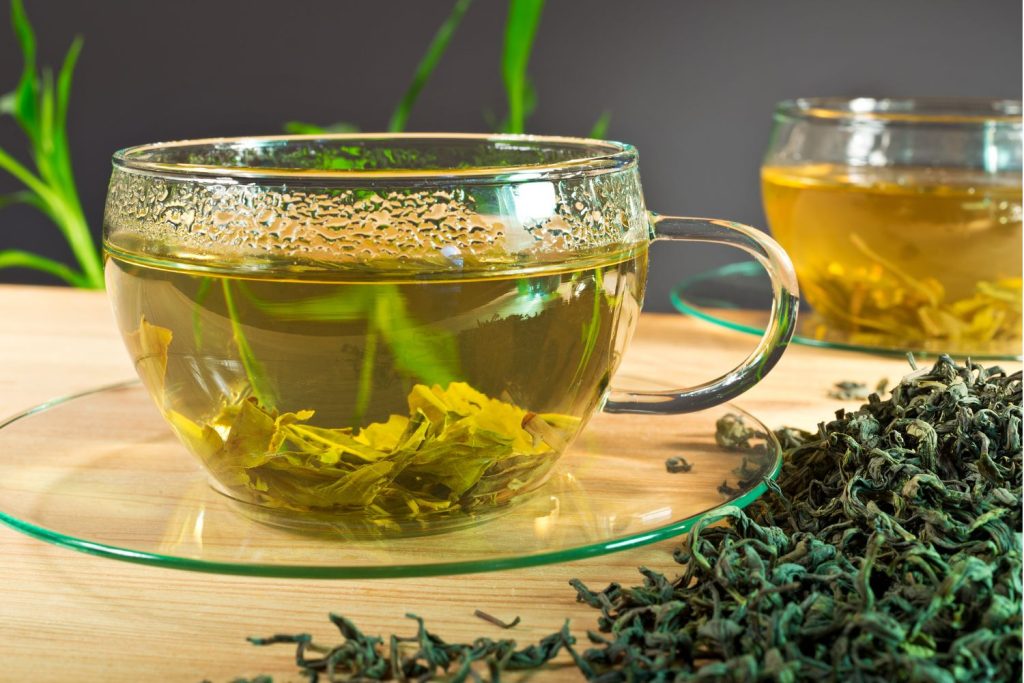
Oregano tea offers a range of potential health benefits. This herbal brew may support cognitive function, aid digestion, and boost immunity.
Cognitive and Physical Health Impact
Oregano tea contains compounds that may help protect against cancer. Its antioxidants fight free radicals, potentially reducing the risk of chronic diseases. Some studies suggest oregano tea might support brain health and improve memory.
The tea’s anti-inflammatory properties could help manage diabetes symptoms. It may also aid in weight loss by boosting metabolism and reducing appetite.
Regular consumption might improve overall health by providing essential nutrients and antioxidants.
Role in Digestive Health and Respiratory Relief
Oregano tea can soothe digestive issues like bloating and indigestion. It may help reduce gas and promote healthy digestion.
For respiratory health, oregano tea might ease cough and asthma symptoms. Its natural compounds have expectorant properties, helping to clear airways.
People with diarrhea may find relief from drinking oregano tea due to its antimicrobial effects.
Immune System and Chronic Disease Management
Oregano tea can boost the immune system. Its antibacterial and antiviral properties help fight off infections and support overall health.
The tea’s anti-inflammatory effects may help manage chronic diseases. It could reduce inflammation throughout the body, potentially easing symptoms of various conditions.
For those with respiratory issues, oregano tea might provide relief from congestion and other symptoms. Its natural compounds can help open airways and reduce inflammation in the respiratory tract.
Side Effects and Precautions of Oregano Tea
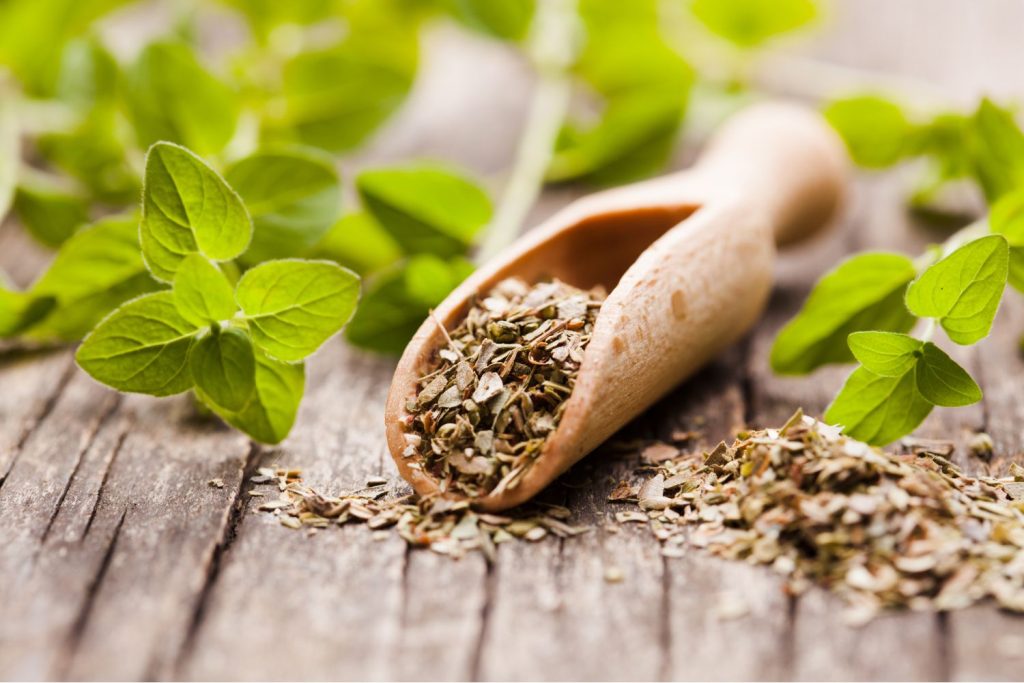
Oregano tea can cause some unwanted effects in certain people. It’s important to be aware of potential risks and who should avoid drinking it.
Common Adverse Reactions
Some people may experience stomach upset after drinking oregano tea. This can include nausea, bloating, or diarrhea.
Skin irritation is another possible side effect. Some may develop a rash or itching after consuming oregano tea or applying it to the skin.
Allergic reactions can occur in people sensitive to plants in the mint family. Signs include hives, swelling, or trouble breathing.
Considerations for Specific Health Conditions
Oregano tea may slow blood clotting and increase bleeding risk in people with bleeding disorders. Thus, they should be careful when consuming oregano tea.
Pregnant women should talk to a doctor before drinking oregano tea. Its effects during pregnancy are not well-studied.
Those with diabetes need to monitor blood sugar closely when consuming oregano tea, as it may affect blood sugar levels.
Interactions and Contraindications
Oregano tea may interact with certain medications. For instance, it can increase the effects of blood thinners like warfarin.
People taking lithium should avoid oregano tea. It may change how the body gets rid of lithium.
Oregano tea might also lower blood sugar, which could be a problem for those on diabetes medications.
Always tell your doctor about any herbal teas you drink. This helps avoid potential drug interactions.
Culinary Uses and Preparation of Oregano Tea
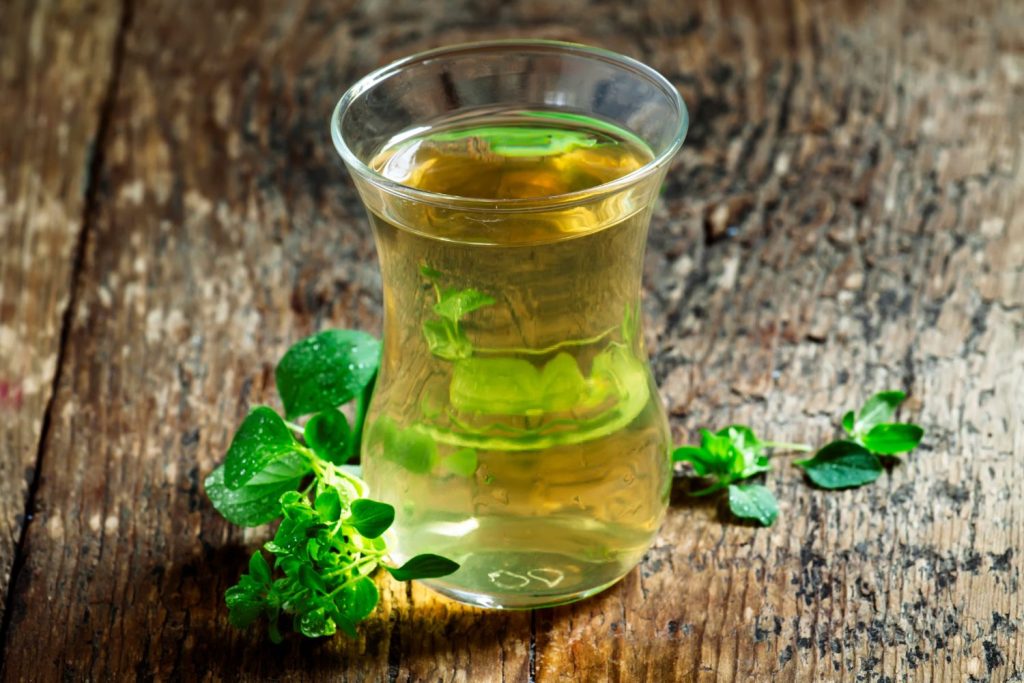
Oregano tea offers a unique flavor and many uses in cooking and health. It’s easy to make at home and can be added to various dishes.
Incorporating Oregano in Diet
Oregano adds a zesty Mediterranean flair to many foods. It’s great sprinkled on pizzas, pasta sauces, and salads. You can also use oregano tea as a marinade for meats or vegetables. Try adding a splash to soups or stews for extra flavor.
Some people drink oregano tea to help with ailments like sore throats or nausea. The warm tea can be soothing and may have some health benefits.
Oregano oil is very strong, so it’s best to use just a drop or two in recipes. The dried herb is milder and works well in many dishes.
How to Make Oregano Tea
Making oregano tea is simple. Here’s a basic recipe:
- Boil 1 cup of water
- Add 2 teaspoons dried oregano or 4-5 fresh leaves
- Steep for 5-10 minutes
- Strain and enjoy
For a stronger tea, use more oregano or steep longer. Add honey or lemon to taste if desired.
Fresh oregano makes a nice tea, but dried works too. Oregano tea can be served hot or cold for different uses.
You can also make a big batch and store it in the fridge for up to 3 days. Reheat as needed or use cold in recipes.
Botanical Context and Varieties of Oregano
Oregano belongs to a large and diverse plant family with many culinary and medicinal uses. Different types of oregano offer unique flavors and properties.
Understanding the Lamiaceae Family
Oregano is part of the Lamiaceae family, also known as the mint family. This family includes many aromatic herbs like mint, sage, basil, lavender, and thyme.
Plants in this family share some common traits:
- Square stems
- Opposite leaves
- Two-lipped flowers
- Strong scents due to essential oils
The Lamiaceae family has over 7,000 species. Many are used in cooking, traditional medicine, and essential oil production.
Popular Varieties and Their Unique Properties
Several oregano varieties exist, each with its own flavor profile and uses.
- Greek Oregano (Origanum vulgare hirtum)
- Strong, spicy flavor
- Most common culinary variety
- High in carvacrol, a compound with potential health benefits
- Spanish Thyme (Plectranthus amboinicus)
- Also called Cuban oregano
- Thick, fuzzy leaves
- Strong oregano-like taste
- Wild Marjoram (Origanum vulgare)
- Milder flavor than Greek oregano
- Often used in Italian cuisine
- Grows wild in many parts of Europe
Each variety has a unique blend of essential oils. This gives them different flavors and potential health effects when used in oregano tea or cooking.
Frequently Asked Questions
What are the potential benefits of drinking oregano tea?
Oregano tea may boost the immune system and fight bacterial infections. It contains compounds that have anti-inflammatory properties. The tea might help with digestion issues. Some people drink it to support overall health. Oregano tea also has antioxidants that could protect cells from damage.
Can oregano tea aid in relieving cough symptoms?
Oregano tea may help with cough symptoms. Its natural compounds might soothe throat irritation. The warm liquid can provide comfort for sore throats. Drinking the tea may loosen mucus and ease breathing. However, more research is needed to confirm these effects.
What are the possible side effects associated with consuming oregano tea?
Some people may experience stomach upset when drinking oregano tea. It could cause mild digestive discomfort in sensitive individuals. Allergic reactions are possible but rare. Excessive consumption might lead to headaches or dizziness. Start with small amounts to see how your body reacts.
How does oregano tea impact lung health?
Oregano tea might have positive effects on lung health. Its compounds could help clear airways and reduce inflammation. Some people drink it to support respiratory function. The tea’s potential antibacterial properties may fight lung infections. More studies are needed to fully understand its impact on lungs.
Are there specific times when drinking oregano tea is most beneficial?
Drinking oregano tea when feeling under the weather may be helpful. Some people consume it at the first sign of a cold. Others drink it regularly for general health support. Having the tea before bed might aid in relaxation. Consuming it with meals could potentially assist digestion.
What precautions should be taken by individuals before consuming oregano tea?
Pregnant women should consult a doctor before drinking oregano tea. People on medications should check for potential interactions. Those with allergies to mint family plants should be cautious. Start with small amounts to test for any adverse reactions. Individuals with chronic health conditions should speak with a healthcare provider first.
References:
Oregano: Overview of the Literature on Health Benefits
Supplementation with green tea and oregano extracts on productive characteristics, blood metabolites, and antioxidant status of Jersey cows during the transition period
A REVIEW ON MIRACLE PLANT OREGANO
Oregano (Origanum vulgare) extract for food preservation and improvement in gastrointestinal health
This website does not provide medical advice.
All information provided on this website, and on associated social media networks, including but not limited to texts, images, and numbers are for general information purpose only. It is not intended as medical advice and it does not include all possible precautions, side effects, or interactions that may occur. Neither NaturalLivingOnline.com nor its author/founder take responsibility for how you use this information. Statements contained on NaturalLivingOnline.com have not been evaluated by the FDA. You should conduct thorough research via multiple sources and consult your physician or qualified doctor before using any essential oil or herbal remedy. Information on NaturalLivingOnline.com must not be relied upon for medical, legal, financial or other decisions.

